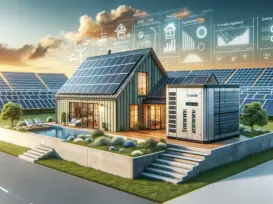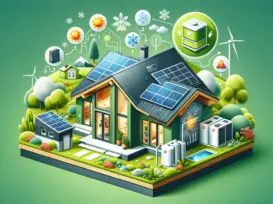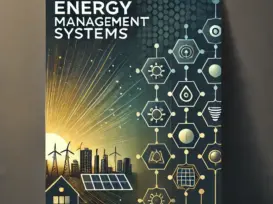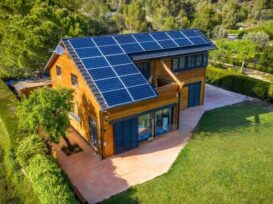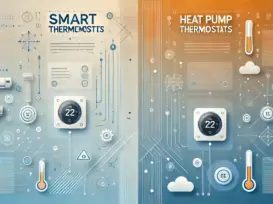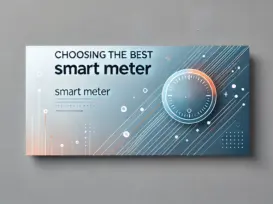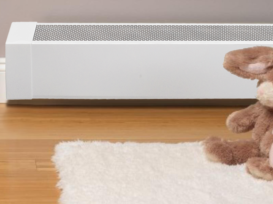Grus Home Energy - Home Energy Management
Maximizing Efficiency: Home Energy Management
Home energy management is a growing trend as individuals seek to reduce their carbon footprint and lower their utility bills. By implementing smart technologies and making simple changes to daily habits, homeowners can optimize their energy usage and create a more sustainable living environment.
One of the key components of effective home energy management is the use of smart devices and systems. Smart thermostats, for example, allow homeowners to control the temperature of their home remotely, ensuring that energy is not wasted when no one is present. These devices can also learn the household’s schedule and adjust the temperature accordingly, saving both energy and money in the long run.
Another popular smart technology for home energy management is smart lighting. By installing programmable light switches or smart bulbs, homeowners can create schedules for their lights to turn on and off at specific times. This not only reduces energy consumption but also enhances home security by giving the appearance that someone is always home.
In addition to smart devices, simple changes to daily habits can also make a significant impact on energy usage. For example, turning off lights and electronics when not in use, unplugging chargers and appliances when they are not in use, and using energy-efficient appliances can all contribute to lower energy bills and a more sustainable lifestyle.
Home energy management also involves monitoring energy usage and identifying areas where improvements can be made. Many utility companies offer tools and resources to help homeowners track their energy consumption and identify ways to reduce it. By analyzing this data and making adjustments as needed, homeowners can take control of their energy usage and make informed decisions about how to improve efficiency.
Another important aspect of home energy management is the use of renewable energy sources. Solar panels, wind turbines, and geothermal systems are all ways to generate clean energy for the home. While the initial investment can be significant, these systems can significantly reduce or even eliminate the need for traditional energy sources, leading to long-term cost savings and environmental benefits.
Ultimately, home energy management is about finding the right balance between comfort, convenience, and sustainability. By implementing smart technologies, making simple changes to daily habits, monitoring energy usage, and utilizing renewable energy sources, homeowners can create a more efficient and sustainable living environment for themselves and future generations.
Blog, Smart Home Automation , April 18, 2024 , Energy Efficiency, Home automation, Home Energy Management, Smart Thermostats
Blog, Energy Savings & Cost Reduction , October 12, 2024 , Energy Efficiency Home, Energy Savings, Home automation, Home Energy Management
Blog, Buying Guides & Comparisons , December 2, 2024 , Energy Efficiency, Energy Efficiency Home, Energy Savings, Home Energy Management
Blog, Buying Guides & Comparisons , December 11, 2024 , Energy Efficiency, Energy Savings, Home automation, Home Energy Management, Smart Thermostats
Blog, Buying Guides & Comparisons , June 18, 2025 , Energy Efficiency, Home Energy Management, Smart Thermostats
- 1
- 2
©2025 All Rights Reserved. Grus IoT Co.,Ltd.
